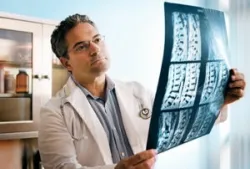
As part of a campaign to reduce the number of people awarded Social Security disability, the Social Security Administration has changed the rule about how much weight to accord opinion statements from treating doctors. Under the old rule, it was presumed that the treating physician had a special knowledge of the patient, and those opinions were normally accorded more weight than the opinions of the doctors that the SSA sent the claimants to for a one-time exam, or the reviewing doctors that never examine the claimants at all.
These opinion statements from treating doctors, about the physical or mental limitations the claimant has, are routinely sought by lawyers and placed in evidence to support claims of disability.
The new rule, which applies to applications filed on or after March 27, 2017, no longer gives special status to treating physician opinions. Instead, all opinion statements from every source will be assessed by the supportability of the opinion, and the consistency of the opinion. Supportability refers to how strong the objective medical evidence and supporting explanations are. In other words, if a person’s limitations arise from spinal pain, the doctor’s opinion about the limitations the claimant has, will be assessed in terms of how compelling the abnormality appears to be in the medical imaging (MRI, CT, etc.).
Have You Been Injured In An Accident? Contact Pilzer Klein Law
864-235-0234By consistency, they mean whether the opinion is consistent with other medical opinions, prior administrative findings, and other evidence of record. This devalues treating doctors’ opinions immensely, since the agency’s non-examining doctors habitually resolve all doubts against the claimants, according minimal limitation of function.
The agency will continue to consider the treating doctor’s relationship with the claimant. For example, they will still look at the length of the treatment relationship, the frequency of examinations, the purpose of the treatment relationship, and the specialization of the doctor.
Opinion evidence from all treating sources must be acknowledged in the decision, and an explanation provided for how persuasive it was found to have been. However, the analysis need not be terribly detailed. They do not have to explain, factor by factor, how they arrived at a judgement about how much weight to accord an opinion.
This devaluing of opinion evidence from treating doctors is part of a campaign to tighten up program eligibility, and reduce the number of people drawing disability.
Call or text 864-235-0234 or complete a Free Case Evaluation form






